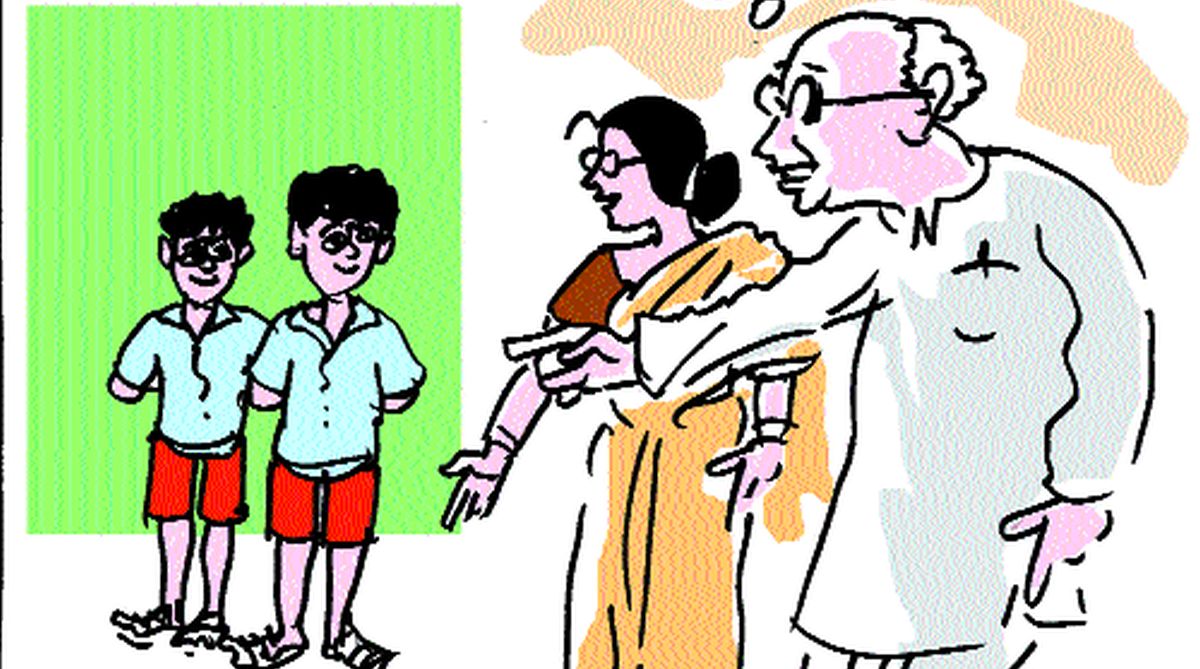MCD’s Divyang Mahotsav commences in the city
The first Divyang Mahotsav of Municipal Corporation of Delhi (MCD) kicked off here on Friday.

My mother said that, when we were infants, people often asked whether my brother and I were twins. I found it hard to believe. He was taller, better looking and fairer, the last quite important in India.
I would be tongue-tied and even failed to say my name when my parents introduced me to their ever-flowing stream of friends. In contrast, my brother would announce his name clearly, with a confident smile, and add that he was a student in the school next door. I remember guests would turn to my parents and say how bright their eldest son was. Then, realising that I was within earshot, added, “Your other son is charming too.”
Advertisement
We were close, always together. Our parents took great pains to treat us equally. If he got a new shirt, I got one too. On his birthday, I too received gifts, and he on mine. We were avid readers and always asking for books. Father never chanced buying a book for one without buying another for the ogling brother.
Advertisement
We were avid sportsmen too. Whatever he played, cricket, soccer, badminton or table tennis, I wanted to play too. He excelled in table tennis; I was relieved to find that I was adept in badminton. We loved cricket and wanted to be like Don Bradman or Mushtaq Ali, having been taken by father to see the latter in Eden Gardens. I wasn’t a great batsman, but bowled competently and fielded diligently. But I noticed our friends always chose my brother to be the captain of a side, never me.
This was understandable, because he was highly sociable. He talked, he laughed, he could easily start a conversation with a total stranger. I could at best join a group and be congenial.
I could see how smart he was. Though Bengali was our mother tongue, we learned to speak English early, because several of our parents’ colleagues were English and we played with their children on social occasions. We had barely learned English before my brother started reading Aldous Huxley and Bertrand Russell. He talked excitedly about the ideas he had picked up from new authors. I listened open-mouthed and tried hard to keep up. I admired his acumen, particularly as I saw nothing comparable in other young people I met, and I felt like a plodder next to him.
He could be shockingly direct and rebellious. Father saw him reading Lady Chatterley’s Lover and wondered whether he should be reading such a book. My brother wondered in response whether our father had read the book and, if he had, understood it. I overheard my parents discussing his obstreperousness for days.
My brother had a simple solution. He went to visit my aunt in a distant town and decided not to come back. He stayed with her, went to a different college and attended a different course.
He did not realise the magnitude of the shock he had administered to our parents. And to me. We were such a close-knit family and so constantly together that his absence felt like an enormous physical void. Mother’s eyes seemed to mist every time she looked at the vacant chair at our dinner table.
Our paths diverged from that point. To our surprise, he forged a successful academic track, gained a doctorate, worked at a clinical institute, and eventually joined the country’s most creative social science think tank. He pioneered research in new areas and wrote a series of seminal books. One thing never changed. He remained steadfastly his own person. He stayed disorganized and idiosyncratic, resolutely original and invariably controversial.
I worked for industry and government. I didn’t care for status. I didn’t even care much for immediate results. But I had fun analyzing how things worked or didn’t work. Pompously, we called it strategy. I found my plodding approach a help: People are always throwing facts at you – and often views pretending to be facts – and you need a way to get past that and unmask what lies behind. I learned to respect tradition, but also be ready to try the untried.
The curious truth is I feel I have become more articulate and less asocial, while my brother has turned more inward. Even curiouser is the truth that, though we have lived in different continents for thirty years, our links were never stronger.
I still admire him, but I flatter myself I understand him better. I know he understands me better than anyone else. We could indeed be twins.
The writer is a Washington-based international development advisor and had worked with the World Bank. He can be reached at mnandy@gmail.com
Advertisement